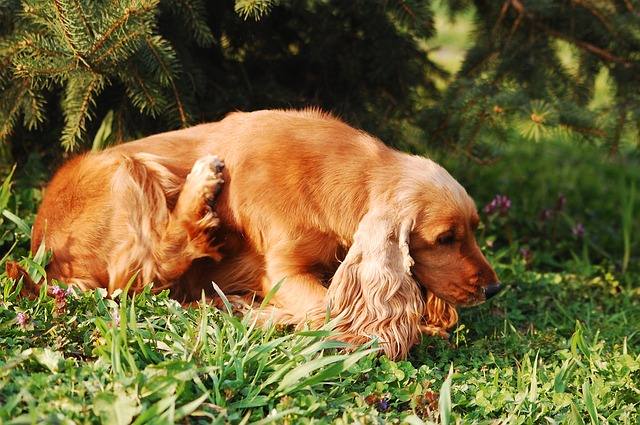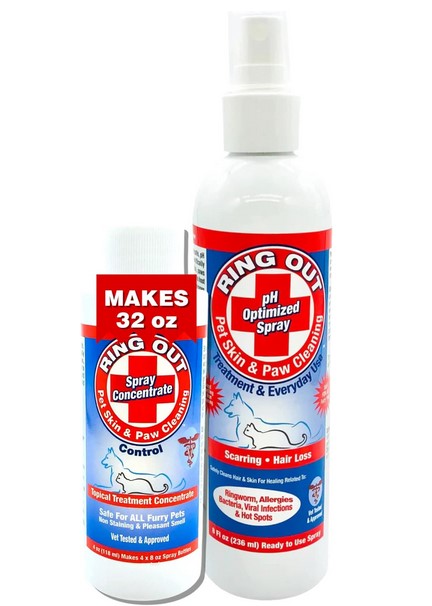
A Guide to Ringworm in Dogs
Ringworm in dogs, contrary to what the name implies, is not caused by a worm but is a fungal disease that is caused by Microsporum gypsum (20%), Trichophyton mentagrophytes (10%), and Microsporum canis (70%). It is a highly contagious disease that can lead to scaly skin and patches of hair loss on a dog and can spread to other animals and humans as well. The fungus can also be spread from human to human, as well as from human to animal.
Symptoms of Ringworm in Dogs
Typical symptoms of ringworm include lesions that appear on the dog's head, ears, forelimbs, and paws. These lesions appear as crusted, circular bald patches, sometimes red in the center. In mild cases, there might just be a few broken hairs, but in severe cases, the disease can spread to almost the entire body. It is possible for dogs to carry the fungus without showing any symptoms at all.
Treatment for Ringworm in Dogs
It all depends on how severe the infection is, as to how it is treated. A medicated shampoo or ointment containing miconazole or a dip such as lime sulfur may be prescribed by your vet to kill the fungus, and there are cases where oral medications are necessary, too, to kill ringworm. It may be necessary, in extreme cases, that the fur be cut away, and a topical or oral treatment be used as well. Lesions should start healing from about one to three weeks after starting treatment.
It is important to note, though, that you adhere strictly to the vet’s instructions as far as the length of time the treatment should be used because even after the lesions are gone, it does not mean that your dog is completely cured and will not infect another human or animal. Some diagnostic tests may need to be carried out to make sure that your dog is indeed free of the disease. Unfortunately, there is no guarantee that your dog won’t be re-infected again at some stage of his life.
Prognosis of Ringworm in Dogs
Since this is a fungal infection that can spread all over your dog’s body and infect other dogs and humans as well, it is extremely important that you visit your vet if your pet shows any signs of skin problems. Your vet might use a Wood’s lamp, which is an ultraviolet light, to examine your dog’s hair. He or she might also look at hairs under a microscope or take a sample of the affected area in order to perform an accurate diagnosis.
Ringworm is generally not considered dangerous, though, and most dogs who have ringworm will make a full recovery.
Areas and Dog Breeds Affected by Ringworm
There are various types of fungi found throughout the world that can cause ringworm. Healthy adult dogs are usually resistant to ringworm, but young dogs and puppies, because their immune system is not fully developed yet, are more susceptible. Many dogs, although they are carriers of the disease, show no symptoms, but they can still spread the disease to other dogs and humans.

